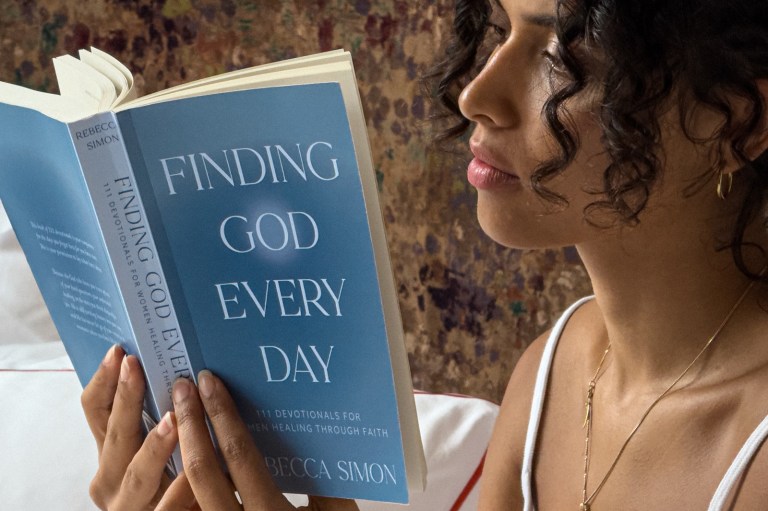
7 Uncomfortable Things You Need To Realize If You Want To Heal From Being Cheated On
I’m not sure which is worse: suspecting infidelity or finally revealing it.
Statistics say that one-third of all marriages involve infidelity. But I think this number should be higher. Affairs and illicit love chase the corners of our hearts. Cheating bites at our heels like a tired, relentless dog. We walk into it or away from it.
Sometimes I feel that cheating is this dog, even after the fact. It is a seven-layer wound. It builds a web of scar tissue that, when excavated, bleeds afresh.
I’ve been cheated on—horribly, but then again, cheating is always horrible—yet even writing about it now, many years later, is a bruise. I used to think that it was impossible to heal from infidelity.
But nothing is impossible, my friend. (You, for example, are always possible.) Healing from the wound of infidelity takes some careful, unfortunate mining. It will require some work on your part. Yet it is worth it, and I’ve got you—in the meantime.
This is what you need to realize.
You couldn’t have stopped it.
In the months after my fiancé’s lover sent me a Facebook message detailing her affair which began days before an engagement ring slid onto my finger, I sank into a fury of storyboarding.
I wrote and rewrote my past. I began with certain days, certain afternoons, certain trips. I tried to identify the points where I could have changed the timeline, could have prevented a meeting, swayed his gaze.
I drew little boxes filled with cartoons. I drew dotted lines and speech bubbles. I drew arrows and wrote captions.
As a writer, I’m the queen of storylines. I change plots with the swipe of an eraser. I wanted to do the same with my story of infidelity—I wanted to find the gaps where I could have stopped it. I wanted, absurdly, to take responsibility, to square off the pain a bit, make myself feel complicit.
It is the empath’s old trick: put yourself in the ring. We give too much, even when we’re grieving.
The reality I eventually came to terms with—and one that you need to know now—is that you couldn’t have stopped it. You couldn’t have worn a sexier bra, gave more of yourself, been more aware of his (or her) texting habits. You couldn’t have worked harder to retract his (or her) decision.
What I mean to say is: you ceased to have a role in this a long time ago. The decision to cheat was not yours—it was your lover’s. You had no agency. You are not to blame. You will never be to blame.
In fact, infidelity is similar to abuse in this way. Survivors, too, are not to blame. They are never to blame.
Your trust will hide—for a long time.
Some people move on from infidelity rather quickly. I used to think such people were more evolved than I was. I envied their capacity to treat affairs like shopping splurges—something unfortunate and careless, but not something grievous. They glanced at the receipts and then tossed them in the trash.
I, however, cannot so easily let a cheater go.
I love deeply and fully. I honor my partner. I see love (and sex) as sacred, lasting things, infinite, terrifying, primal. I’ve always wanted to be the person who could have an open relationship, be polyamorous, love everyone, but that’s not how I am.
Infidelity, remember, is the seven-layer wound. It eradicated my trust, which I already give too freely. For a time, love disgusted me. I distrusted family members. I placed Bumble, engagements, marriage, hookups in a bar on the same level.
Your trust will hide. It will find a closet and close a door and refuse to emerge, even when you call it. This is normal. Recognizing your trust’s desire to rest and reflect in the dark is fundamental to your healing.
You can’t prevent it from happening again. In fact, he (or she) may do it again.
When you do decide to date again—if the relationship with the cheater ended—you may, in fact, date another soon-to-be-cheater. You may encounter infidelity, even when you’re ready to love and be loved fully and honestly.
If you decide to stay with the partner who has cheated on you, he or she is not likely to be faithful. People who have cheated once are 350% more likely to cheat again, on the same partner or otherwise.
I discovered years after that the fact that my ex-fiancé was sustaining multiple other affairs with women, some of which had begun before the revelation of the “first” lover.
After that, I was not able to maintain relationships with men or women long enough to even leave a window for infidelity (on my part or theirs). I did not, you see, wish to be left out in the rain again.
Yet, once again, in most cases, infidelity is not something you can cut up yourself. You can’t lock it out. You can’t follow a checklist to prevent it. All you can do is love.
It’s not necessarily the other’s fault.
You may want to villainize the Other Woman or the Other Man. It’s easy to do this, to turn that complicit lover into a demon.
It’s easy to also think of a dark, seductive, tempting lover, one who is better than you in all ways—smarter, sexier, richer, more successful.
In both of these pictures, the Other is also to blame.
But this may not be the case.
There are some individuals who will refuse to engage in an affair if they know that the partner is already in a relationship, engaged, married, etc. There are also those who will not refuse. There are those who are hurting. There are those who are deceived, unhappy, looking for something just as you are looking for something.
In all cases, there is simply not enough information to assign blame.
When you cease to blame the Other, you give yourself the freedom to heal.
You’re not the one who needs to change.
In the greasy wake of infidelity, I stopped eating. Then I ate a lot. Then I tried to work out as much as I could, lose weight, get lean.
I obsessed over new clothing lines and red high heels. I browsed fashion blogs and beauty playbooks like these and turned them into my private bibles. I thought about changing the way I spoke, what I talked about, my interests.
Part of this was my desire to fumble my way closer to a true and authentic, unfazed me. Part of it was spurred on by a profound, vital kind of anger.
But part of it, a huge part of it, was also my belief that I could change myself to prevent this from happening again.
We are so good at thinking we are responsible for our wounds.
You are not the one who needs to change. The cheater always is. And, in some way, the cheater may not ever change.
Make the changes you need to heal, but don’t make them for the sake of infidelity—either preventing it or cleaning up its residue.
You may never know why.
This is perhaps the hardest truth to pass on to you, my friend.
You likely want with all of your bones and cells to know why he or she slept with the Other, had an emotional affair, accumulated swipes on Tinder for months without your notice.
You may have already asked your lover “why” and received an answer (or, in my case, a non-answer).
I wish I could tell you that you will receive a satisfying reason, something that you can enter into a text box and then erase.
It doesn’t work this way. Some cheaters are abusers, sex addicts, misogynists, telltale narcissists. Others are confused and lonely souls craving something they can’t even identify. Still, others are afraid.
You may have been too bright and shiny for your lover. You may have been too exquisite. They may have been too intimidated by this, or blinded, or saddened.
All this could have been the reason and more.
Abandon this guessing knowledge, sweet one. It may not ever make its way to you. And you may never feel satisfied.
The “why” that you can answer is why you chose to move on. That’s the one that matters most of all, yes?
Why did I move on? I’ll tell you.
I moved on because I deserve the fullness of the love I give. I deserve honor and something akin to piety. I deserve to be with someone who does not have to lie to patch things together. I deserve lightness, ease, and a floating, anchored kind of love.
That leads me to my last point:
If you wish to heal from being cheated on, you must also recognize what you deserve. And what you deserve is the love of your wildest dreams. You are deserving of it, and always will be. And if you won’t find it in this life, you’ll find it in the next.
Trust me. And then heal. ![]()











